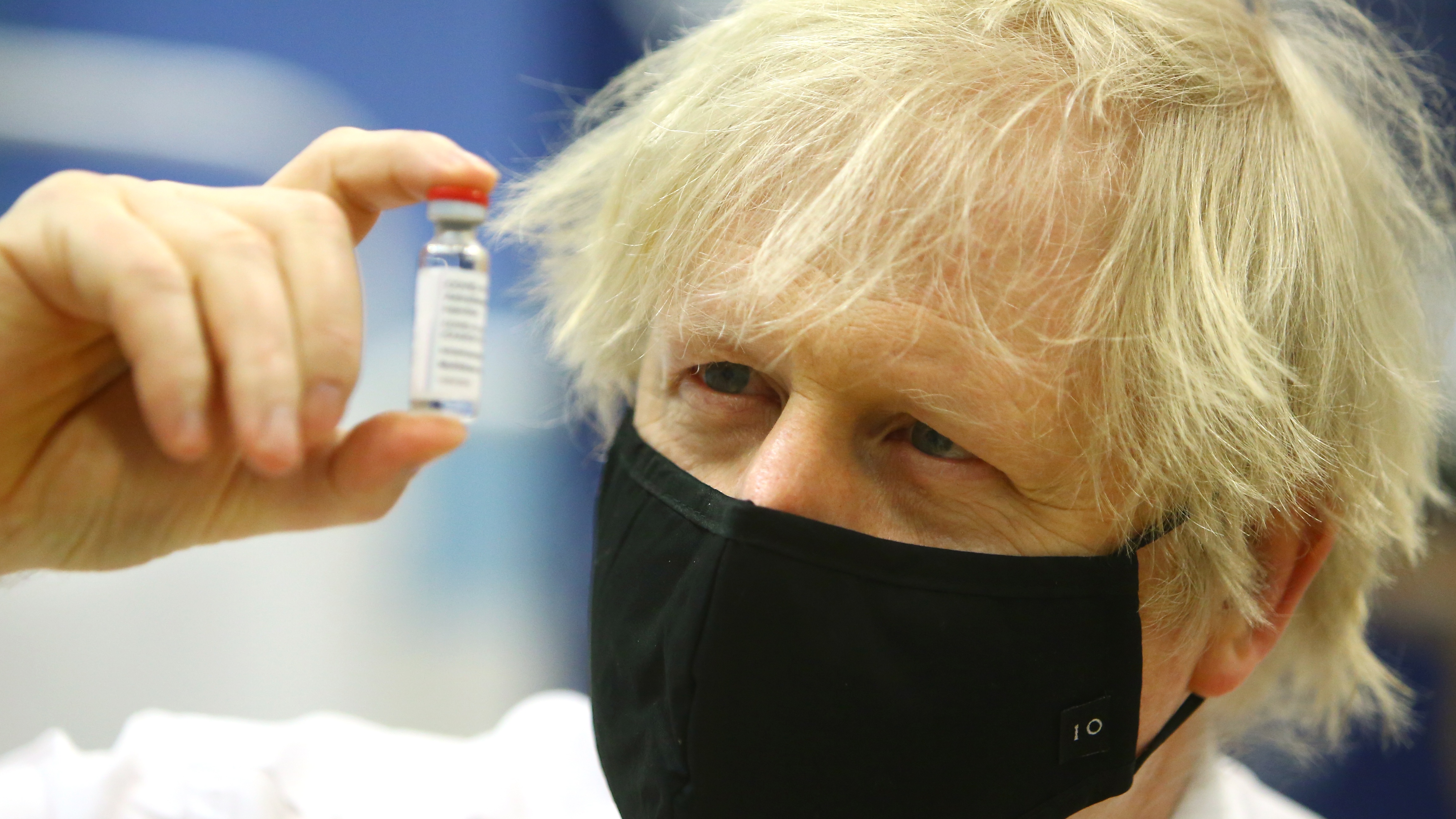US health officials question AstraZeneca vaccine trial data
Independent monitors says the pharma giant may have used ‘out-of-date information’

A free daily email with the biggest news stories of the day – and the best features from TheWeek.com
You are now subscribed
Your newsletter sign-up was successful
As scrutiny of the Oxford-AstraZeneca vaccine continues to dominate headlines in Europe, US health officials have waded into the row to raise fresh doubts about the jab.
In what The Wall Street Journal describes as the “latest misstep by the British drug giant”, AstraZeneca has been left scrambling to update its efficacy data after the US National Institute of Allergy and Infectious Diseases (NIAID) “took the rare move of publicly questioning” the accuracy of the company’s human trials.
The US government health agency issued a statement yesterday saying that the independent Data and Safety Monitoring Board (DSMB) had found that AstraZeneca “may have included outdated information” that “may have provided an incomplete view of the efficacy data”.
The Week
Escape your echo chamber. Get the facts behind the news, plus analysis from multiple perspectives.

Sign up for The Week's Free Newsletters
From our morning news briefing to a weekly Good News Newsletter, get the best of The Week delivered directly to your inbox.
From our morning news briefing to a weekly Good News Newsletter, get the best of The Week delivered directly to your inbox.
“We urge the company to work with the DSMB to review the efficacy data and ensure the most accurate, up-to-date efficacy data be made public as quickly as possible,” the statement continued.
The NIAID intervention raises the suggestion that AstraZeneca “essentially cherry-picked data to make its vaccine look better”, The New York Times (NYT) reports - an accusation that comes “a fresh blow to the credibility” of the UK-developed vaccine.
A leaked letter from the DSMB to the NIAID laying out the watchdog’s concerns “castigated AstraZeneca for jeopardising the integrity of a closely watched clinical trial”, according to the paper, which adds that “the public airing of a conflict between a pharmaceutical company and a board overseeing a clinical trial is almost unheard-of”.
As The Washington Post notes, the DSMB team are not “distant observers or whistle-blowers”, but rather “independent experts granted inside access to the AstraZeneca results for months, seeing the full data before even the company has access”.
A free daily email with the biggest news stories of the day – and the best features from TheWeek.com
AstraZeneca yesterday released a statement pledging to “immediately engage” with the DSMB to “share our primary analysis with the most up-to-date efficacy data”.
“We intend to issue results of the primary analysis within 48 hours,” the company added.
Credibility shot?
The Oxford-AstraZeneca vaccine has come under near-constant scrutiny since being approved for use in the UK in late December. Many other European countries subsequently approved but then suspended use of the vaccine, amid efficacy and safety concerns that have triggered a fall in public trust in the jab.
However, the dispute over AstraZeneca’s trial results is “about the degree of effectiveness of a vaccine that is indisputably effective”, says the NYT.
AstraZeneca announced on Monday that interim results suggest the jab is 79% effective at preventing Covid, but the DSMB experts “said the actual number may have been between 69% and 74%”, the paper continues.
But either way, “the mass availability of a vaccine with even a 69% efficacy rate could help the world conquer the coronavirus”.
All the same, while “the additional data doesn’t appear to overturn the fundamental finding that the vaccine works”, the latest row has “cast into doubt the fate of the vaccine” in the US, says The Washington Post.
The jab is the most widely used Covid vaccine in the UK, with rapid drops in Covid infections, hospitalisations and deaths reported after recipients got the first dose.
Joe Evans is the world news editor at TheWeek.co.uk. He joined the team in 2019 and held roles including deputy news editor and acting news editor before moving into his current position in early 2021. He is a regular panellist on The Week Unwrapped podcast, discussing politics and foreign affairs.
Before joining The Week, he worked as a freelance journalist covering the UK and Ireland for German newspapers and magazines. A series of features on Brexit and the Irish border got him nominated for the Hostwriter Prize in 2019. Prior to settling down in London, he lived and worked in Cambodia, where he ran communications for a non-governmental organisation and worked as a journalist covering Southeast Asia. He has a master’s degree in journalism from City, University of London, and before that studied English Literature at the University of Manchester.